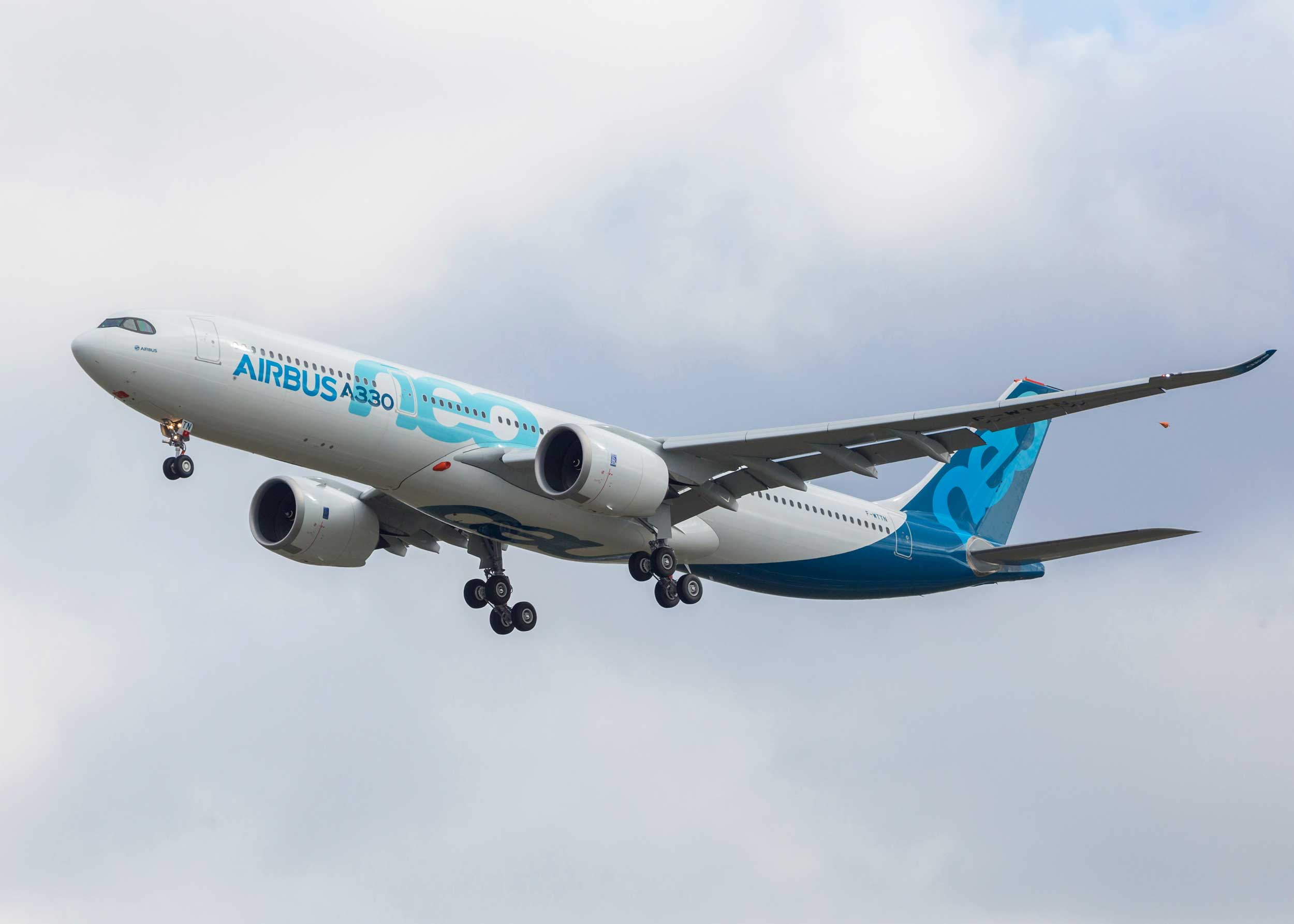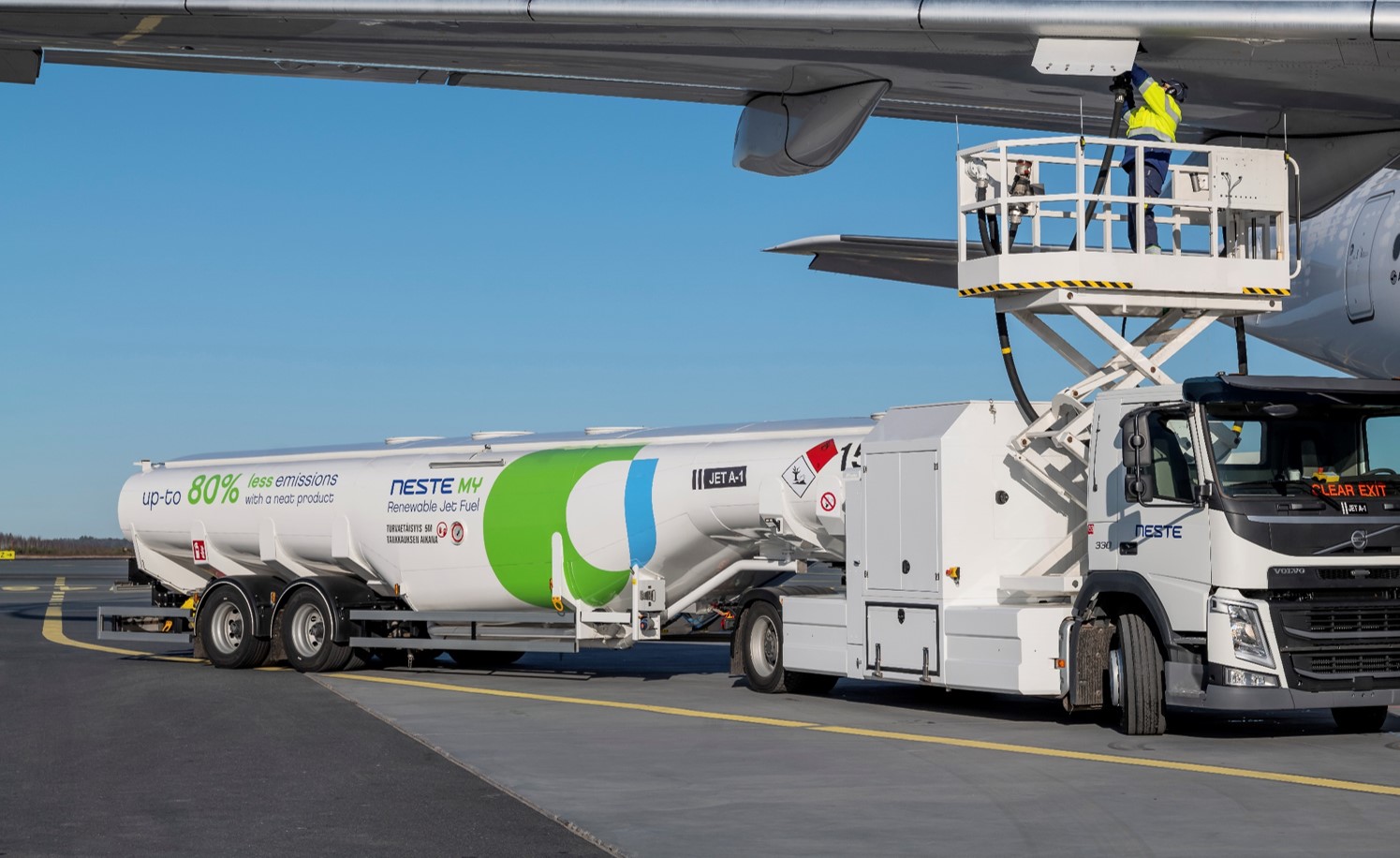
Airbus says all its aircraft are certified up to 50% SAF
Sustainable Aviation Fuel (SAF) is increasingly seen as a vital step forwards in achieving net zero carbon in aviation.
The problem is that there’s not much of it about at the moment. However, the roll-out of SAF is gathering momentum with two recent announcements.
First, Rolls-Royce, Airbus and Shell said they are jointly investing in the technology required to scale-up production of sustainable aviation fuels.
Second, Sustainable Aviation Fuel is to be introduced for the first time at Gatwick Airport through a collaboration between Neste, Q8Aviation, easyJet and Gatwick Airport.
Under the UN’s Race to Zero goals the current ‘breakthrough’ required for the decarbonisation of aviation is to achieve a minimum of 10% SAF use by 2030 with the proportion not reaching 100% earlier than 2050.
Rolls-Royce, Airbus and Shell say they are investing in the technology that could enable that to happen sooner, through a three-pronged initiative:
- Rolls-Royce announced that by 2023 all its ‘Trent’ engines, used across a range of long-haul aircraft, will have been proven compatible with 100% SAF.
- All Airbus aircraft are currently certified to operate on up to a 50% blend of SAF mixed with kerosene and Airbus has the ambition to achieve certification of 100% unblended SAF by the end of this decade.
- By 2025, Shell alone has committed to produce 2 million tonnes of SAF per year. That is more than 10 times the total amount of SAF produced globally today.
Warren East, Chief Executive, Rolls-Royce, said: “Flying generates between 2% and 3% of global emissions, but as easier-to-abate sectors decarbonise that proportion will increase, so shortening aviation’s journey to net zero with action in the opening phase of this ‘Decisive Decade’ would be a huge win for the world.
“However, we will only create the focus and momentum required to achieve this if we ratchet our collective ambition beyond the current target of achieving 10% SAF usage by 2030. We need partners who share our vision for the use of SAFs as a solution for reducing emissions on long-haul flight, to help all of us successfully transition to a net zero carbon future.”
SAF at Gatwick

Neste tanker delivering SAF
Starting from 19 October, a total of 42 easyJet flights operating from Gatwick Airport are to be powered by a 30% Neste MY Sustainable Aviation Fuel blend – the first time a departing flight at Gatwick has used sustainable aviation fuel (SAF) and the first by easyJet.
Of the 42 flights, 39 will be the easyJet flights operating from Gatwick to Glasgow throughout the COP26 Climate Change Conference, which runs from 31 October to 12 November.
Across all 42 flights, greenhouse gas emissions will be reduced by up to 70 tonnes.
Neste’s sustainable aviation fuel, which is fully certified, is produced from 100% renewable and sustainable waste and residue raw materials, such as used cooking oil and animal fat waste.
